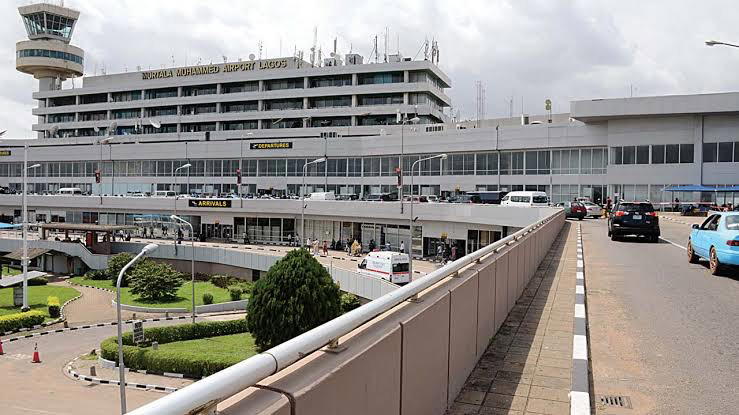Introduction
In today’s fast-paced digital economy, mobile banking in Nigeria has revolutionized financial transactions, offering an efficient and convenient way to manage money. With the rise of mobile banking apps and USSD codes, Nigerians can now transfer funds, pay bills, recharge airtime, and carry out several banking operations from the comfort of their homes or offices—without needing to visit a physical bank.
The increasing adoption of mobile banking has significantly improved financial inclusion, especially for those in rural areas where traditional banking services are limited. This article serves as a comprehensive guide on how to use mobile banking in Nigeria for easy transactions. Whether you are a first-time user or looking to optimize your banking experience, this guide covers everything—from registration and performing transactions to security measures and troubleshooting common banking issues. By the end, you will be equipped with all the knowledge needed to use mobile banking efficiently and securely.
What is Mobile Banking and Why is it Important?
Mobile banking refers to a system that allows individuals to access financial services using mobile phones, tablets, or any internet-enabled device. It includes mobile apps, USSD banking, and SMS banking services that enable users to conduct various banking operations such as balance inquiries, fund transfers, bill payments, and account management.
The importance of mobile banking in Nigeria cannot be overstated. With over 80% of Nigerians owning a mobile phone, mobile banking has become a critical tool for financial inclusion, helping millions of people—especially in remote areas—access banking services without visiting a physical branch. Additionally, mobile banking reduces the stress of long queues in banks, saves time, and provides 24/7 accessibility. In a country where cash transactions still dominate, mobile banking is playing a key role in promoting digital payments, making transactions safer, faster, and more reliable.
How to Register for Mobile Banking in Nigeria
Before enjoying the benefits of mobile banking, users need to register for their bank’s mobile banking service. Most Nigerian banks offer mobile apps and USSD services for easy registration. Here’s a step-by-step guide to getting started:
1. Registering via Mobile Banking Apps
- Download your bank’s official mobile app from the Google Play Store or Apple App Store.
- Launch the app and select ‘Register’ or ‘Sign Up.’
- Enter your bank account number and other required details.
- Create a secure password or PIN for transactions.
- Verify your registration using a One-Time Password (OTP) sent to your registered phone number.
- Once verification is complete, you can start using the app for transactions.
2. Registering via USSD Banking
- Dial your bank’s USSD code (e.g., *737# for GTBank, *901# for Access Bank, etc.).
- Follow the on-screen prompts to enter your account details.
- Create a four- or five-digit PIN for transactions.
- Confirm registration and start transacting immediately.
Both registration methods are straightforward and can be completed in minutes, allowing users to access mobile banking services without hassle.
How to Perform Transactions Using Mobile Banking in Nigeria
After successfully registering, performing transactions is simple. Below are some of the most common banking operations that can be carried out using mobile banking in Nigeria:
1. Money Transfers
- Open the mobile banking app or dial the USSD code assigned to your bank.
- Select the ‘Transfer Money’ option.
- Enter the recipient’s account number and select their bank.
- Input the transfer amount and confirm using your PIN or password.
- A confirmation message will be sent upon successful transfer.
2. Bill Payments
- Open your bank’s mobile app and select ‘Bill Payment’.
- Choose the bill type (electricity, water, TV subscription, etc.).
- Enter your customer details (e.g., meter number for electricity).
- Confirm the payment using your PIN or password.
- For USSD banking, select the bill payment option and follow similar steps.
With these easy steps, users can make seamless financial transactions without visiting a bank.
Security Tips for Safe Mobile Banking in Nigeria
Although mobile banking offers convenience, ensuring your transactions are secure is crucial to preventing fraud and cyber threats. Below are some vital security tips to safeguard your mobile banking experience:
1. Use Strong Passwords and PINs
- Set a unique and hard-to-guess PIN or password for your mobile banking app.
- Avoid using easy-to-guess numbers like birthdays, phone numbers, or ‘1234’.
- Do not share your banking PIN with anyone, including bank staff.
2. Beware of Phishing Scams
- Do not disclose your banking credentials to anyone, even if they claim to be from your bank.
- Avoid clicking on suspicious links sent via SMS, WhatsApp, or email.
- Always verify emails from your bank by checking the official sender address.
3. Enable Two-Factor Authentication (2FA)
- Many Nigerian banks offer two-factor authentication to enhance security.
- Activate SMS or email OTP verification to add an extra layer of security.
4. Keep Your Mobile Banking App Updated
- Regular updates help protect against the latest security vulnerabilities.
- Always download your bank’s app from the official store (Google Play Store or Apple Store).
By following these security measures, you can reduce the risk of fraud and ensure safe mobile banking transactions.
Troubleshooting Common Mobile Banking Issues in Nigeria
Even with a smooth banking experience, users may encounter challenges while using mobile banking. Below are common issues and their solutions:
1. Failed Transactions
- If a transaction fails, check your internet connection and ensure you have sufficient funds.
- For USSD transactions, confirm that you’re dialing the correct bank code.
- If funds are deducted without successful payment, wait a few hours or contact your bank for a reversal.
2. Blocked or Suspended Accounts
- Multiple incorrect PIN entries can result in a blocked account.
- If this happens, visit your bank or use the ‘Reset Password’ feature on your mobile app.
- Contact your bank’s customer service to restore access.
3. Delayed Transaction Notifications
- Some banks experience network delays, affecting alerts and transaction confirmations.
- You can verify transactions via your mobile banking app history or by checking your bank statement.
Understanding these solutions will help users resolve minor issues without needing to visit a physical branch.
The Future of Mobile Banking in Nigeria
Mobile banking is constantly evolving, with technological advancements shaping its future. Some of the key trends expected to transform the banking sector include:
1. Artificial Intelligence (AI) in Banking
- AI-powered chatbots are helping banks automate customer service and improve response time.
- AI can also detect fraudulent activities and prevent financial losses.
2. Blockchain Technology for Secure Transactions
- Some Nigerian banks are adopting blockchain technology to enhance security and transparency.
- This innovation can help prevent cyber fraud and unauthorized transactions.
3. Expansion of Digital-Only Banks
- Fintech startups and digital banks are growing rapidly, providing customers with full banking services without physical branches.
- More Nigerians are adopting these alternatives for better convenience and lower transaction fees.
With these innovations, mobile banking in Nigeria is expected to become even more efficient, secure, and accessible.
Conclusion
Mobile banking in Nigeria is an essential tool for fast and seamless financial transactions. It offers users 24/7 access to banking services, making it easy to send money, pay bills, and manage finances from anywhere.
By registering for mobile banking and following security best practices, users can enjoy a safe and efficient banking experience. As technology advances, the future of mobile banking in Nigeria looks promising, with AI, blockchain, and fintech startups set to further improve the banking landscape.
If you haven’t embraced mobile banking yet, now is the best time to get started. With the right knowledge and security measures, mobile banking is the key to hassle-free financial management in Nigeria.








